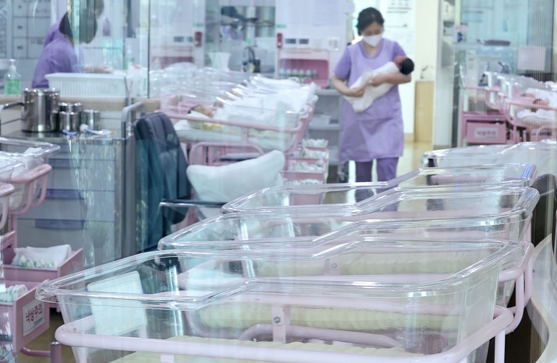
Editor’s note
: In this weekly feature China Daily gives voice to Asia and its people. The stories presented come mainly from the Asia News Network (ANN), of which China Daily is among its 20 leading titles.
The South Korean economy is poised to continue its recovery in the latter half of this year but the country must address its “existential issue”, which stems from problems such as low productivity and a declining population, the Organization for Economic Cooperation and Development said on July 11.
“We publish surveys every two years, but this one is about an existential issue for (South) Korea,” said Vincent Koen, the OECD’s country studies division chief in the economics department, during a press briefing at the Ministry of Economy and Finance building in the city of Sejong.
One urgent issue South Korea must address is the population decline and its notoriously low fertility rate, according to the OECD Economic Surveys: Korea 2024 report released that day.
“Supporting people to have the number of children they desire would dampen the projected population decline, while lengthening working lives and welcoming more foreign workers would counteract the adverse effects of aging,” the report noted.
For this, Koen also called for structural reforms in the labor market, improvements in labor and family policies, and changes in societal norms to counter population decline.
The report also called for a “decisive upgrade” in South Korea’s export-oriented growth model to bolster declining productivity.
Citing the gap between large and small companies as a key reason for falling productivity, the OECD urged reforms to create a level playing field for competition. Stricter management of subsidies and benefits for small and medium-sized companies as well as streamlined regulations to enhance market competition are recommended, the report said.
Meanwhile, the OECD survey report forecast a 2.6 percent growth outlook for the South Korean economy this year, driven by improved exports and strengthening domestic demand in the second half.
“With inflation falling back and renewed demand for computer chips powering a wave of investment in AI across the world, exports are again driving growth,” Koen said.
For 2025, the OECD expected that South Korea’s economic growth would slow to 2.2 percent.
Unlike exports, private consumption in South Korea has been weak in the first half of the year, pulled down by high interest rates and weak real wage growth. The OECD anticipates the domestic market to rebound in the latter half.
” (South Korea’s) elevated debt servicing burdens and accumulated inflation will continue to weigh on private consumption and investment in the short term, but domestic demand should strengthen from the second half of 2024,” the report stated.
The Korea Herald